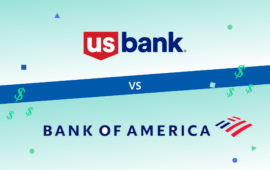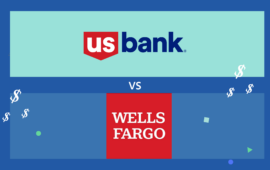Home Equity Loans vs. Home Equity Lines of Credit
About Stefanie
Stefanie began her career as a journalist, reporting on options, futures, and pension funds, and most recently worked as a writer and SEO content strategist at a digital marketing agency. In her free time, she enjoys teaching Pilates and spending time with her daughter and Siberian Husky.
Read full bio
At a Glance
Using your home’s equity can be a low-interest way to gain access to cash quickly. Two options for home equity financing are home equity loans and home equity lines of credit (HELOCs). In this article we’ll discuss:
In this article, you’ll learn:
What is home equity?
Home equity is the amount of your home that you own. If you purchased your home with all cash then your equity stake is 100% of the home’s value. If, as in most cases, you purchased a home with a conventional mortgage, you likely had to pay some money upfront as a down payment. That money is the equity that you initially have in your home.
How can you increase your home equity?
There are two ways to increase your home equity:
- Pay down your mortgage: Making your mortgage payments every month will slowly increase the percentage of equity you own. To speed the process up, you can make a larger payment than you owe. Just make sure to check with your bank that the extra money will be used to reduce the loan principal, and not to prepay the interest or the next month’s mortgage payment.
- Increase the value of your property: The value of your home may increase naturally over time, due to inflation or your neighborhood increasing in popularity. You can also make improvements to your property that will increase its value, like updating or expanding your home.
Home equity loan
A home equity loan is secured by your home’s value, and is essentially a second mortgage. A home equity loan is repaid with monthly payments over a fixed term. The amount you can borrow depends on several factors—including your credit history, income, and home value—and is typically limited to 85% of your home’s equity. You can use the money for anything, but your interest will be tax-deductible only if you put it toward home renovations.
Home equity line of credit (HELOC)
A HELOC is a loan that uses your house as collateral, but, unlike a conventional mortgage, it gives you a revolving line of credit rather than a lump sum. Essentially, a HELOC acts like a credit card, allowing you to access money as needed. Like a credit card, you have a spending limit. Similar to a home equity loan, there are no restrictions on how you can use the money, though interest is only tax-deductible if you’re improving the value of your home.
Main differences between home equity loans and HELOCs
There are four main differences between home equity loans and HELOCs that you should be aware of when deciding which is better for you.
- Payment methods: Home equity loans pay out in a lump sum, while a HELOC allows you to withdraw money as you need it.
- Interest rates: Home equity loans charge interest at a fixed-rate, so you’ll have a clear and definite repayment schedule. HELOCs charge variable interest rates, so the rates are based on the standard index (meaning that they are subject to change based on the U.S. economy).
- Annual fees: Home equity loans don’t carry annual fees, while some HELOCs have transaction fees, as well as annual fees during the repayment period.
- Interest payments: Since home equity loans come in lump sums, you pay interest on everything, even if you don’t wind up using the full amount. With HELOCs, you only pay interest on the money you actually need.
How to choose between a home equity loan and a HELOC
Now that we’ve gone over the basics and main differences, let’s take a closer look at when one is a better choice than the other.
When a home equity loan is better than a HELOC
You should pick a home equity loan if:
- You know exactly how much money you need to pay.
- You need a large amount of money at once (i.e., for paying college tuition).
- You aren’t comfortable with fluctuating interest rates and want the stability of knowing exactly how much your payments will be.
- You have a tendency to spend more than you need. With a home equity loan you’ll receive the amount you’ve requested, but you won’t have the ability to take out more.
When a HELOC is better than a home equity loan
You should pick a HELOC if:
- The amount of money you need isn’t set in stone.
- You’re a disciplined spender and want the freedom of funds that are easily accessible.
- You know you have big expenses coming up but don’t know exactly when you’ll need the money. With a HELOC, you can borrow the money when you’re ready.









